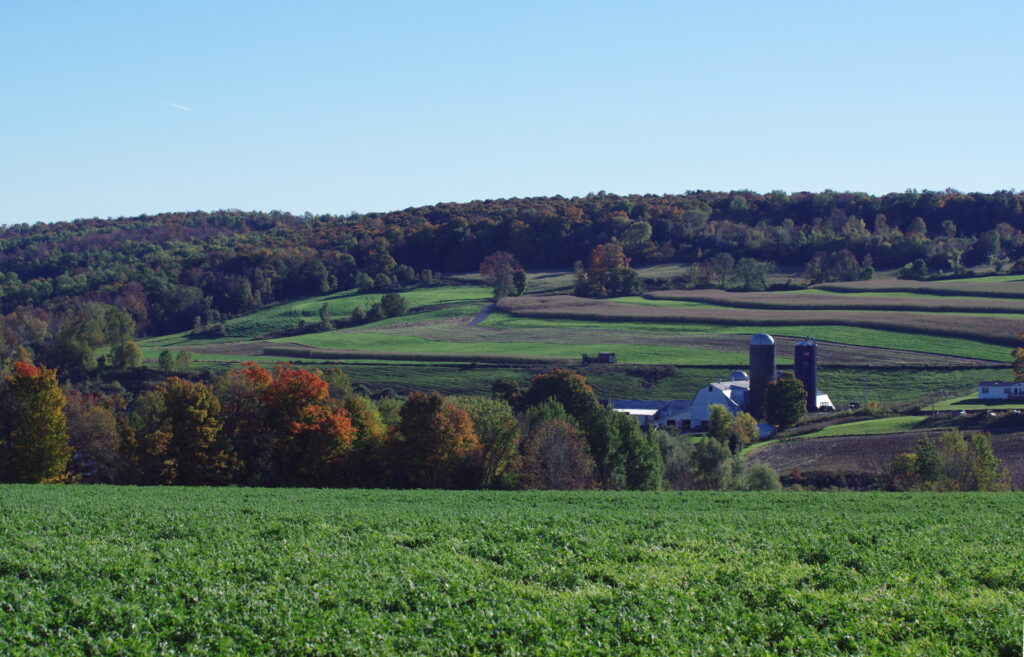
Land agents are salespeople trying to make a living, and whether by design or not, they seem to use a traditional formula:
- Tell you how they care about honesty and integrity and believe in ethics. Do you start a negotiation like that? Why do they feel the need to tell you this?
- Imply that the project is unstoppable, suggesting that your only recourse is to get favorable terms. This is FALSE, you have total veto power over the project by not agreeing to it. They don’t have eminent domain powers – if landowners don’t agree, it doesn’t happen. If they are asking to lease your land, this means that they need it to finish the project and for no other reason. Ask yourself this: If the project is so certain to happen, why do they need nine years to develop it?
- Offer you an exclusive deal, a signing bonus not offered to others or only good for the first landowners that sign, etc. This strategy only works if everyone signs secrecy agreements so that you can’t compare offers with your neighbors. What is the big secret if the project is unstoppable anyways? HINT: It’s not.
- They suggest that they only need your property for some limited use – transmission lines, or a neighbor’s turbine will overhang your property and they just want good community relations. They may go the other way by claiming that they will put revenue generating structures on your land and estimate the financial upside on that basis. The approach may depend on how they read your attitude. In reality, the land agent has no idea what the engineers or the permitting board working a few years from now will decide to do. If they paid for a lease, and are successful with the project, they will maximize the use of the land and whatever verbal representations or suggestions of how they might use your land will long be forgotten. Read the “Purpose of lease” section very carefully. On the other hand, they might do nothing at all, and the lease warns of this, (see the section on “No Representation Regarding Wind Power Facilities” and “Construction” sections), leaving your property encumbered with little revenue to show for it.
- Claim that you can still use your land which is only partially true. They like to show pictures of corn being grown up to a tower or cattle grazing under it. However, under that tower is a massive foundation – often eighty feet wide and seven feet or more thick of reinforced concrete that they spread topsoil over. What would that do to the flow of ground water? Were you aware that “Lessee may request that Lessor not grow crops within a reasonable area around Wind Power Facilities”? What is a reasonable distance? The area under the blades is four acres and they may claim that a larger exclusion area is reasonable. It is totally your risk, and they won’t pay extra for your loss of use. You would also be agreeing to not build structures or even plant trees on land that they lease, not just under the towers. In fact, any other future land use creates a potential legal nightmare. While you don’t hear many complaints from landowners in other wind facilities, remember that they all signed secrecy agreements!
- Paint an overly rosy picture about the financial upside, for example by promising rent for each megawatt of generating units even though the blades might just extend over your property, not actually on it, or your property might be used for roads, cables, berms or nearly anything that doesn’t generate power. The revenue stream from generation may not begin for nine (9) years, if at all, and the time that they are waiting for approval is added to the clock. Also understand that wholesale electricity doesn’t have as much value as you might expect – in fact, several wind companies have long term contracts with the state for only $0.02 per kWh – they can do this because the real money is in production tax credits and other similar tax credits which they exclude from gross revenue. Also note that most wind energy is produced at night when the wholesale cost is the lowest. Have a complaint about low gross revenue calculations? Hire an accounting firm at your own expense but otherwise keep quiet because you signed a secrecy agreement. Challenge a provision of the lease and you are on the hook for the company’s attorney’s fees if you lose.
- Suggest that the lease terms are just legalese that the lawyers require, implying that reality is somehow different. Remember that they care about honesty and integrity and once worked on a farm, so what could possibly go wrong? Right.
- Claim that your neighbors who oppose the project are just jealous of how fortunate that you are for being considered for a lease. This is nonsense. They also like to divide communities by pitting long term residents (larger landowners) against newer residents. Don’t let your community be divided by some land agent who will be gone before the ink is dry.
- They like to claim that they represent a large, solvent, responsible company (we are not suggesting otherwise) but your lease is not with the large company, but with a special purpose shell company instead. The lease may be assigned in the future or terminated outright. You have no idea who you will be dealing with in the future and nearly every provision of the lease is weighted in the wind company’s favor, not yours. If they stop paying, you have to notify all of their lenders simultaneously to give them an opportunity to jump in. However honorable the present company may be, a potential assignee (or their lenders) may be totally different.
